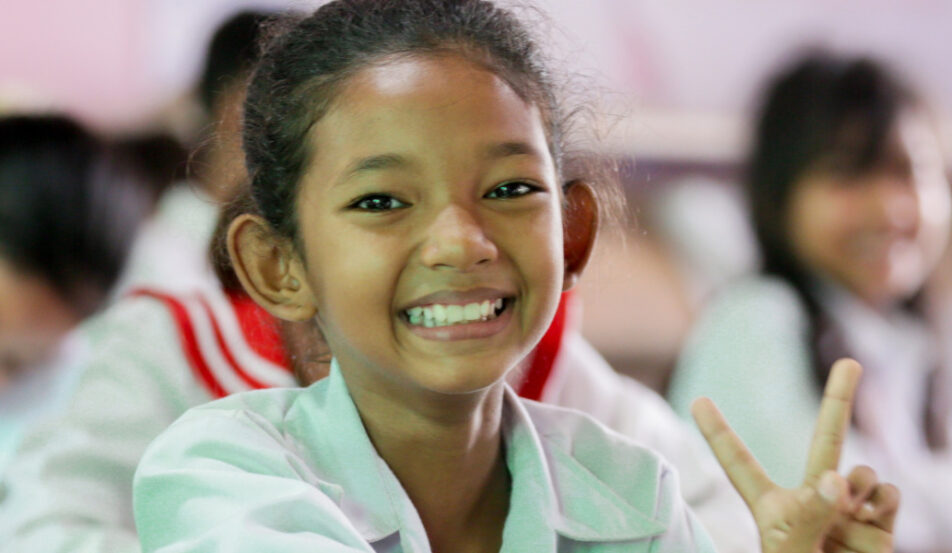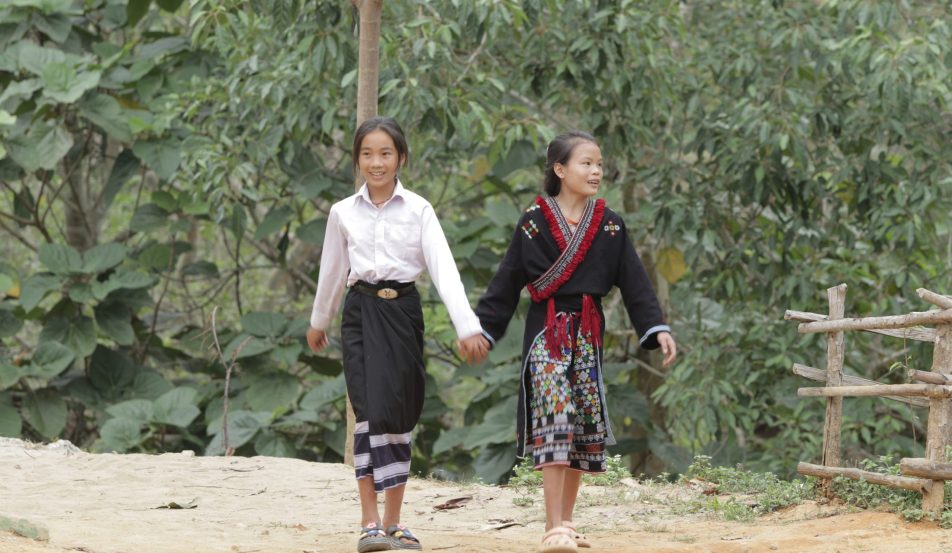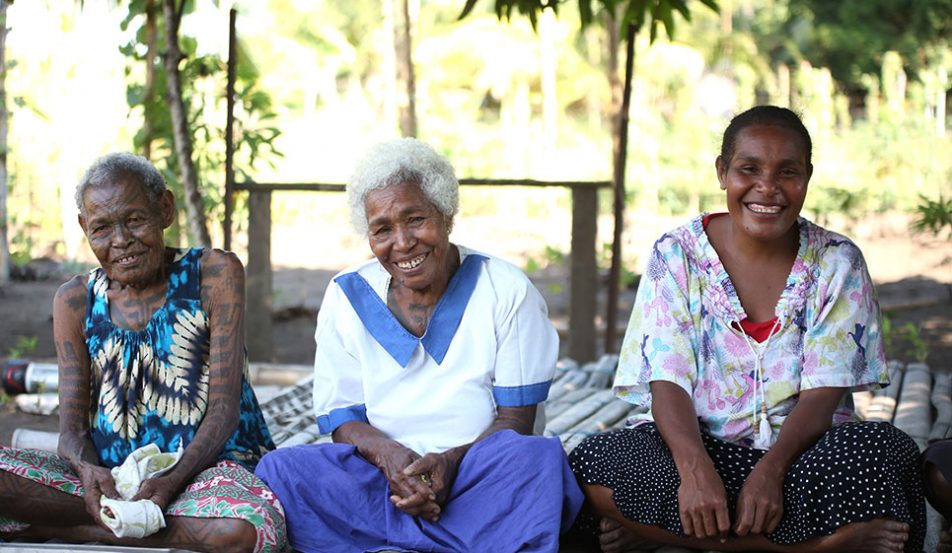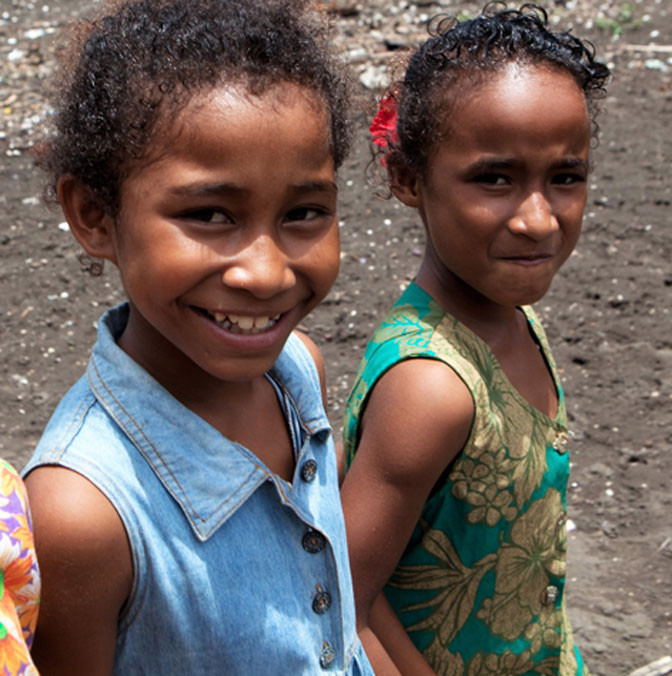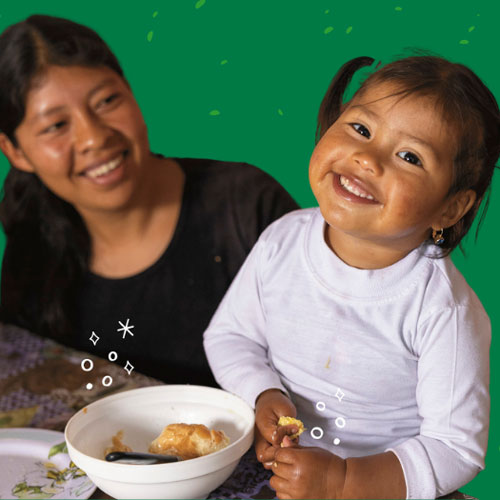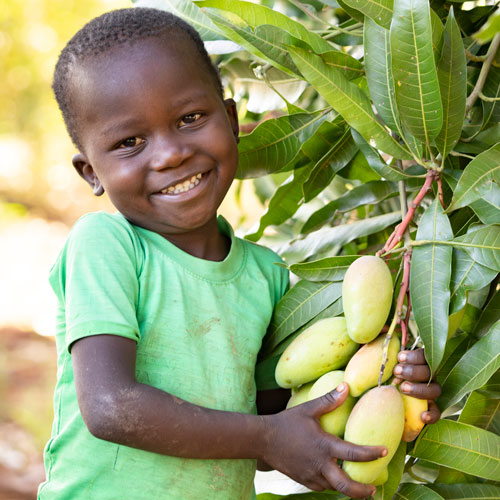Supporting mums to give their children a better start to life
“In my childhood, if a child was not feeling well, we used to take them to the traditional healer, who would beat the sick child with a broom in order to drive out the sickness and evils inside.
“My parents didn`t pay much attention to us. Even when I was six years old, my son`s age now, I was responsible for my younger siblings,” says 25-year-old Manali, remembering life in the remote Indian village where she grew up.
When Manali married seven years ago, she moved to one of the 43 rural villages ChildFund works with in Raigad district in western India.
Her and her husband had two children, Kunal is now six years old and Komal is three years old, who Manali was determined to give a better start to life than she received.
“From that day onwards, I`ve been involved in ChildFund`s programs,” she says, the most important being ChildFund`s early childhood development (ECD) program, which helps to educate and support parents to meet the needs of their youngest children.
“Eighty per cent of brain development takes place in the first three years of a child`s life,” says Virendra Kulnari, program manager of ChildFund`s local partner in Manali`s community. “But many parents are not able to give their children the support they need because they have to go to the fields to work.
“The early childhood development program is a key program of our organisation,” says Kulkarni, “because we want the children to not only be healthy and well-nourished but also to reach their highest potential, now and in the future.”
Now, Manali understands how best to support her children and their development. “I`ve learned that sanitation and hygiene are so important for my family,” she says. “Whenever Kunal comes home from playing outside, I make sure he cleans his hands and feet before coming into the house.”
Children in the village are monitored monthly, both through home visits and at the ECD centre, which is attended by all the community`s preschool-age children, to ensure their height and weight are on target and they are well nourished. Mothers also learn in classes how to prepare protein-rich, nourishing foods from locally available ingredients.
“One thing I really enjoy is coming together with other mothers, learning new recipes and ways to cook healthy and nutritious foods, then bringing this knowledge back home and cooking healthy meals for my family,” says Manali.
Manali`s son, Kunal, attended the local ECD centre until he was ready for school and his younger sister, Komal, still attends the centre, which supports the children`s cognitive, communicative, motor skill and social development.
“ECD preschools focus more on helping children understand basic concepts than on alphabet and math; instead of learning numbers, for example, they learn through play, song, story and art,” says Kulkarni. “Once the conceptual clarity is done, definitely they are going to learn in a better way when they start attending school.”
And they do. In the days before ECD programming arrived in the area, Kulkarni says, children used to drop out of school after first or second grade. Now both the ECD centres and schools report 100 per cent enrolment.
Manali can`t help but see the contrast between her community now and her childhood village. “In my old village, the children are malnourished, you can tell,” she says. “The children aren`t growing up healthy. But my children here are staying on track and living well.”
Manali relishes her role as a mother but most of all, she enjoys her children themselves. “I love it when the children start to learn to speak and communicate with you,” she says, “when they make songs in their own way. It`s so special.”



